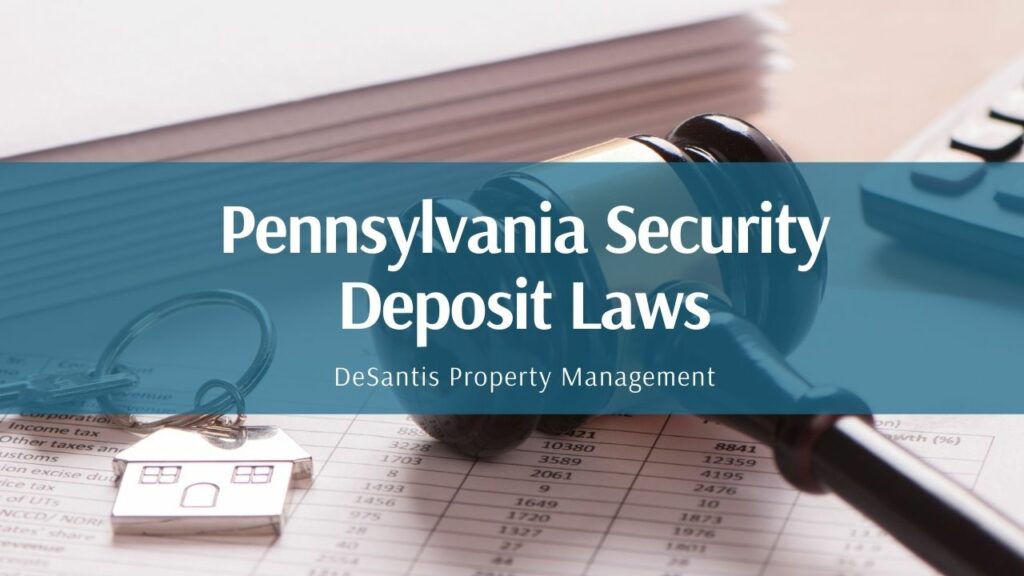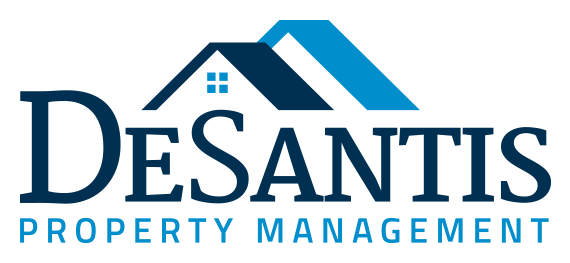Pennsylvania Security Deposit Laws

Besides rent, a security deposit is another move-in fee that Pennsylvania renters usually pay before signing the rental agreement. A security deposit acts as a safety net for landlords by protecting them against financial issues emanating from negligent renter actions.
The Pennsylvania security deposit laws are part of the state’s landlord-tenant laws. As a landlord, you must abide by certain rules when it comes to handling your tenant’s deposit. If you fail to handle the security deposit correctly, you risk incurring multiple punitive financial damages.
The following is a basic overview of Pennsylvania’s security deposit laws.
Is there a limit to how much Pennsylvania landlords can ask for as a security deposit?
Yes, there is a limit to how much security deposit a landlord can collect from their Pennsylvania renters. The maximum security deposit differs based on the length of a tenancy and must be listed in the lease.
If the lease runs for a year, then you, as the landlord, can collect a maximum security deposit of two month’s rent. If the tenant renews their lease for the second year, then you must collect a maximum security deposit of at least one month’s rent. And if the renter has been in the lease or rental unit for at least 5 years, then you aren’t required to ask for a security deposit.
Is there a law for storing a tenant’s security deposit?
Yes, a Pennsylvania landlord must adhere to certain rules when it comes to storing a tenant’s deposit.

If the Pennsylvania security deposit exceeds $100, then a landlord must do either of the following:
- Store the deposit in an escrow account. The account must be in a banking institution regulated by either the Pennsylvania Department of Banking, the Comptroller of the Currency, the Federal Home Loan Bank Board, or the Federal Reserve Board.
- Place the tenant’s deposit in an interest-bearing account, for leases that are renewed beyond the first 2 years. The accrued interest will belong to the renter and the interest must be paid to them yearly. A landlord may be entitled to 1 percent of the deposits as an administration fee.
Alternatively, a landlord may also be able to post the tenant’s deposit as a bond. The bonding company must be authorized to do business in the state of Pennsylvania. Whatever method is used must be communicated to the tenant in their lease.
Do tenants have a right to be notified of receipt of security deposits?
Yes. Once a landlord receives the security deposit from their tenant and stores them in any of the aforementioned ways, they must send the renter a written notice. In the notice, a landlord must state the following:
- The name and address of the bank where it’s being stored.
- The amount of that has been deposited.
According to Pennsylvania law, can landlords keep part or all of their tenant’s security deposits?
Yes. Landlords have a right to make security deposit deductions for certain justified reasons. They include:
- Costs of clearing unpaid utilities when a renter is moving out. When moving out, Pennsylvania tenants are supposed to pay all utility bills in their names. If they fail to do so or have unpaid rent, the landlord can use the deposit to cover those expenses.
- The cleaning fee for the unit. Generally speaking, aside from standard wear and tear, a tenant has to leave their rental in the same state they found it. If the unit needs professional cleaning services, then a landlord can deduct that cost from their security deposit.

- Nonpayment of rent. If your Pennsylvania tenant doesn’t pay rent and has no justifiable reason to withhold their rent, the landlord may be entitled to part or all of their security deposit.
- Apart from failing to pay rent, a landlord may also be entitled to the renter’s security deposit in case they cause excessive damage to the rental property. Excessive damage is anything that exceeds normal wear and tear. It negatively impacts the rental’s value, usefulness, or normal function.
What is the purpose of a walk-through inspection?
A walk-through inspection is where both the landlord and tenant inspect the property’s condition before moving out. Generally speaking, it allows the tenant to fix any violations before moving out. However, if the tenant fails to do so, then the landlord may use part or all of the deposit to fix any issues found that exceed normal wear and tear.
When must you return the tenant’s security deposit, according to Pennsylvania law?
If a landlord hasn’t made any deductions to the renter’s deposit, they must return the deposit within 30 days of the tenant moving out.
If the landlord has made deductions, they must still return the remaining portion of the deposits to the tenant within 30 days. If the landlord fails to do so, they may be liable for paying the tenant up to double the amount owed.

By Pennsylvania security deposit law, it would be in the best interest for the landlord, to include a written list of the security deposit deductions, as well as the approximate repair costs. If the landlord fail to do this, they may forfeit the right to withhold any portion of your tenant’s deposit.
If tenants don’t provide the landlord with their forwarding address, then they may not have any liability regarding returning the deposits.
Can a tenant use their security deposit as last month’s rent?
No, your Pittsburgh, PA tenant cannot use their security deposit to cover last month’s rent. The only exception to this is if both you, the landlord and your tenant have an agreement in writing allowing it.
Are security deposits taxable in the state of Pennsylvania?
Security deposits in Pennsylvania aren’t taxable until they become the landlord’s property. This occurs when the security deposit is forfeited, or the security deposit is applied towards rent payment, or the security deposit is applied to charges allowed under the lease agreement.
Summary
A successful Pennsylvania landlord needs to understand the Pennsylvania security deposit laws. You must also stay up-to-date on landlord-tenant laws, the legal eviction process, lease or rental agreement law, and any other rental laws.
If you would like help keeping track of any law related to property ownership or would like assistance managing your rental properties, contact the professionals at DeSantis Property Management!
Disclaimer: This blog should not be used as a substitute for professional legal advice from a licensed and qualified attorney in your state. Laws frequently change, and this post might not be updated at the time of your reading. Please contact us for any questions you have in regard to this content or any other management needs.
